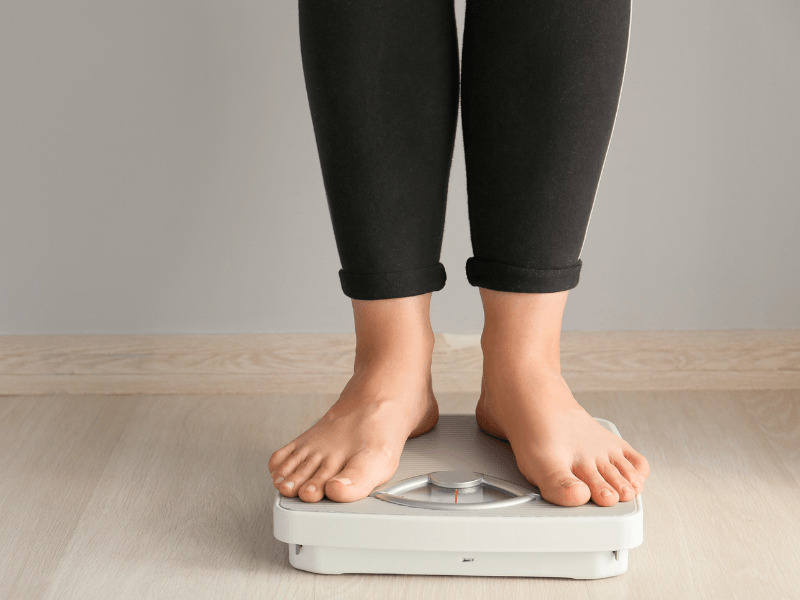We all can agree that sleep is one of the most important aspects of health, and yet many of us struggle to get a good night's rest. If you’re one of the many people who toss and turn all night, it may be time for a new mattress! But the big question is, what mattress should you get? If this is something that you’ve been wondering and trying to figure out, you’re in luck — today, we’re specifically examining what mattress chiropractors recommend. Join us as we dive into the research to uncover which mattress is their top choice.
Quick Summary of Key Points
Most chiropractors recommend mattresses that provide ample support and pressure relief. Memory foam, latex, or hybrid mattresses are usually recommended since they offer good contouring capabilities and motion isolation. Adjustable firmness hybrid mattresses offer contouring plus the ability to change the firmness of your side of the bed.
The Most Important Factors to Consider in a Mattress
When choosing a mattress, it's important to consider a few key factors that will determine the comfort and support of your mattress. Perhaps the most important factor to consider is firmness. Generally speaking, a medium-firm mattress is considered best for most sleepers, however personal preference can and should be taken into account. A firmer mattress may be preferable for back sleepers due to its greater support, whereas a softer mattress may be more suitable for those who sleep on their side as it can help to keep the spine level. Terms such as “medium-firm” and “soft” mattresses are subjective and there is no industry standard to compare one mattress to another. That is another reason why individual choice is extra important.
Another important factor is the type of mattress you want. There are several different types of mattresses available, from innerspring and foam, adjustable to airbeds, to hybrid and latex. Innerspring mattresses can provide good support at an affordable price, whereas foam mattresses tend to be better at relieving pressure points while providing superior contouring. Hybrid mattresses offer a combination of springs and foam layers; they provide good contouring and bounce but often come with a higher price tag than traditional spring mattresses. This is because they are made with a combination of different materials. Finally, latex mattresses provide great comfort, cushioning and some degree of temperature regulation but may not be suitable for those with allergies or specific sleep needs.
Finally, always take into consideration any health or mobility concerns you may have. If you suffer from back pain, shoulder pain or other physical ailments, look for a mattress that provides ample support; conversely, if you experience night sweats or overheat easily when sleeping, make sure to opt for one which offers adequate breathability and temperature regulation. Many mattresses are made with open-cell, breathable foam or other cooling treatments applied directly to the bed. If it is not advertised, be sure to inquire about these properties.
No matter which type of mattress you choose, it's essential to take all aspects into consideration in order to ensure you get the most comfortable and supportive night's sleep possible. With that said, an understanding of the support system provided by any particular mattress is also essential--a topic we'll tackle in our next section.
Support System
This leads us to another key factor in finding the perfect mattress: support. To have a properly supported spine and body, the mattress needs a strong foundation that helps to keep the spine in alignment. This ensures no part of your body is unsupported and therefore at risk for pain or tension. This also relates to pressure relief and making sure key points of your body are not placed under undue pressure through the night.
While an ideal supportive mattress does differ from person to person depending on their size, weight, preferred sleep position, etc., there are some general guidelines to follow when looking for a supportive mattress. It should be noted, however, that support and firmness are two distinct concepts. While both are important elements of a quality mattress, they require different criteria to be adequately judged.
Generally speaking, the heavier parts of your body (hips and shoulders) should sink in slightly while lighter parts of your body (feet and hands) should remain balanced on the surface of the mattress when lying down. If you experience sinking too fast or having any contact points where you feel pressure, that could indicate either too much or too little support depending on how your body weight is distributed. You can even further test this by gently moving around on the mattress while lying down - if your spine remains in line throughout these movements then you may have found a good match for support. The best way to discover whether a mattress contains the support you need is to sleep on it for at least two weeks. Many companies offer at-home trials for mattresses. But be sure to read reviews to ensure the return process is simple and effective, so you don’t end up with a mattress you don’t want!
Overall, finding the perfect balance between comfort and support is essential for choosing an optimal mattress for yourself. Thankfully, many mattresses—such as those built by iSense—come with adjustable firmness levels so you can experiment to find what works best for you. As we move onto the next factor to consider when buying a mattress, it's important to remember that mattresses range from soft to ultra-firm, with each type offering its own unique benefits for certain sleepers depending on their particular needs.
Firmness
Firmness is an important factor to consider when choosing a mattress given its influence on spinal health and comfort. While it is often assumed that firmer mattresses offer better support for the spine, this isn’t necessarily the case. Mattresses that are too firm can put extra pressure on joints, resulting in discomfort and poor sleep quality. Conversely, mattresses that are too soft can fail to provide the necessary support for the spine and surrounding muscles leading to soreness and a lack of restorative sleep. Finding a mattress with adequate firmness—one that provides ample support yet still allows for proper alignment—is key for both comfort and spinal health.
Research suggests that moderate or medium-firm mattresses may be best for sleepers seeking good spinal support. One 2018 study looked at how different levels of firmness impacted spinal alignment during sleep, ultimately finding that medium-firm mattresses performed better than extra-hard ones and pillowed-top softer mattresses. It must be taken in context, however, as “medium-firm” is highly subjective and it can be difficult to determine what exactly that meant for sleepers in the study and for those looking for a mattress.
Some mattress companies now use "adaptive" foam in their products to counteract this issue—allowing individuals to find their desired level of comfort while still reaping the benefits of optimal support. These mattresses use technology like zoning and contouring to respond intelligently to body shape and movement throughout the night— resulting in decreased tossing and turning and improved sleep quality overall.
Achieving just the right amount of firmness is essential for those looking to maximize back health and sleep quality without sacrificing comfort. Adjustable firmness mattresses can offer a unique solution that single-firmness mattresses can’t. The iSense Classic and iSense Hybrid Premier both offer twenty adjustable firmness settings on each side of the bed. Though the settings range from soft to firm, every setting offers the same amount of pressure relief. These mattresses give you the ability to change the firmness of your bed every night if needed, to adapt to your changing health needs.
The next section takes a closer look at what types of mattress chiropractors recommend in order to obtain these very results.
Key Takeaway
When selecting a mattress, it is important to prioritize spinal health and comfort. Research indicates that medium-firm mattresses offer the best combination of support and comfort for the spine. For even more tailored support, some mattress companies now use 'adaptive' foam technology that responds intelligently to body shape and movement. You can also look into adjustable firmness mattresses for a fully customizable option. Ultimately, finding the right level of firmness is essential to maximize sleep quality, back health, and overall comfort.
Types of Mattresses that Chiropractors Recommend
When it comes to the type of mattress a chiropractor recommends, firmer options have long been seen as the best choice as they typically can offer more support. Standard memory foam mattresses tend to be among the most popular models available, particularly because they help evenly distribute your body weight and offer pressure relief. However, some experts feel that firm mattresses are not always the best option for those with back pain.
Proponents of softer mattresses argue that while overly soft beds can cause issues with poor spine alignment due to lack of support, too-firm mattresses may cause pressure points in sensitive joints and increase discomfort. Similarly, some research suggests too much firmness can increase joint pain, decrease spinal mobility and even inhibit circulation. At the same time, sleeping on an extra-soft mattress could reduce comfort and pressure relief when the hips and shoulders sink into the bed.
The end result is that finding the right level of firmness is essential for those seeking a better night's sleep due to back pain.
Chiropractors typically recommend adjustable beds or hybrid mattresses with layers of foam and latex, so you can customize your desired level of firmness and support. Most adjustable beds are made with large air chambers, which are not as supportive, however. iSense, who offer a range of sleep number similar beds, offers adjustable firmness beds made with small air chambers, foam and pocket coils. Customizable or adjustable beds help you to achieve proper spinal alignment without sacrificing comfort or feeling like you're sleeping on a board. With this in mind, it is worth exploring mattresses designed specifically to provide maximum comfort while supporting your spine's natural curvature.
- A 2018 research study found that medium firmness mattresses were associated with the best sleep quality among adults with chronic back pain.
- In an article published in 2019, the American Chiropractic Association recommends sleeping on a mattress that is supportive and adjustable to get the best quality sleep.
- According to the National Institutes of Health, chiropractors may suggest using memory foam or hybrid mattresses as these offer improved orthopedic support compared to traditional innerspring mattresses.
Orthopedic Mattresses
Phrases such as ‘orthopedic mattress’ and ‘posturepedic’ have been used to describe a variety of mattresses which are most commonly considered to provide support for the spine. Often these mattress types will contain extra fillings to help with body contouring. They may also provide enhanced comfort and improved spinal support.
There has been much debate regarding the lasting benefits of orthopedic mattresses, with some arguing that little research has gone into supporting the claims often made about them. However, many consumers have reported feeling an improvement in their posture and core stability after sleeping on this type of mattress. It has also been suggested that they provide improved cushioning, which can reduce aches and pains associated with poor bedding quality.
The fact remains that whilst there is no specific definitive evidence of long-term improvements being associated with using orthopedic mattresses, the anecdotal evidence indicates that in some cases, it does seem to offer relief from certain musculoskeletal aches and pains. It is difficult to verify the difference between an orthopedic mattress and standard mattresses. A different type of mattress which provides different forms of support - latex mattresses - could be something to consider next.
Latex Mattresses
After considering an orthopedic mattress, many individuals may turn to the benefits of a latex mattress. While they are offered in a variety of comfort levels, these mattresses generally provide excellent spinal support and full-body relief. The reason for this is the bed’s firmer nature and more resilient support layer; this provides superior posture alignment and body contouring compared to a traditional innerspring mattress. Additionally, because these beds are made with either natural latex derived from rubber trees or synthetic varieties, depending on your preference, they are often considered as a more eco-friendly sleeping solution.
There are some who debate that natural latex can be slightly more expensive than its synthetic counterpart, but when it comes down to overall longevity and performance, there is no denying the advantages of having a natural latex mattress. This is why many chiropractors recommend latex mattresses as they promote better spinal health while offering long lasting sleep solutions.
Latex mattresses may or may not be right for you. Do research into the quality of the materials and read real customer reviews before ordering!
Adjustable Firmness Mattresses
Adjustable firmness mattresses can be memory foam mattresses or hybrids, such as the iSense Classic or the iSense Hybrid Premier. This type of mattress can be adjusted for firmness on both sides of the bed at the touch of a button, ranging from soft to firm. It can also be paired with an adjustable base to elevate the head or feet, or both. Adjustable firmness mattresses give you the option to change the firmness you need, depending upon your unique and changing health situation. The back pain you experience today may go away in a month; or perhaps your health needs will change in other ways. Adjustable firmness mattresses give you control over your comfort.
As noted above, as of 2019, the American Chiropractic Association recommends sleeping on a mattress that is supportive and adjustable to get the best quality sleep.
Now, with all the options before you, how do you decide which type of mattress is right for your needs? While getting advice from a specialist is highly recommended, we can offer some additional tips to help guide you in finding the perfect sleeping solution.
Additional Tips for Choosing the Right Mattress
Once you have decided on the type of mattress for your chiropractic needs, there are some additional tips to consider.
First, make sure you know the exact size of your bed frame or base and buy a mattress that works with these dimensions. Failing to properly fit the mattress on your frame can create uncomfortable gaps that can cause a loss of support during sleep and lead to soreness or stiffness in the morning. If you are considering purchasing a foam mattress, make sure the quality of the foams chosen are good enough to stand the test of time.
Second, determine how firm or soft you want the mattress to be. Everyone's preferences differ but, generally speaking, mattresses that provide more cushioning will allow your spine to sink into the material as opposed to sinking into an excessively firm surface which could lead to posture or alignment issues. Consulting with a chiropractor about what kind of mattress may provide optimal support for your body type and sleeping patterns is also an option for finding the perfect firmness.
Third, if sharing your bed with a partner and noise sensitivity is a concern for uninterrupted sleep then consider buying a mattress with strongly proven motion isolation. Most hybrid and latex mattresses have a motion isolation feature which provides extra cushioning to respond independently to different parts of your body. This reduces motion transfer from one partner to the other while sleeping.
Finally, look into extended warranties and trial periods offered by reputable brands and retailers where you purchase the mattress; these guarantees should give you peace of mind when making this important decision since some people may need additional time to adjust to new mattresses. It typically takes about two weeks for your body to adjust to the feel of a new mattress. Taking advantage of at-home trials can give you the opportunity to sleep on the mattress, but retain the option to return it if needed. Be sure to read reviews about the return process to ensure you won’t be stuck with a mattress you don’t like!
Choosing the right mattress is not just an investment in comfort but also an investment in health — proper spinal alignment is key to avoiding long-term aches and pains that can occur from sleeping on insufficient support systems. Taking these tips into consideration should set you up for a successful night’s sleep.
Frequently Asked Questions and Responses
What characteristics should I look for in a mattress recommended by chiropractors?
When it comes to mattresses that are recommended by chiropractors, there are several important characteristics to look for. Chiropractors usually recommend a mattress that is medium-firm, which provides enough support while still allowing your body and spine to sink in just the right amount. Additionally, they might also suggest a mattress designed with ergonomic features that specifically help alleviate pressure points and reduce back pain. Memory foam mattresses, adjustable mattresses and hybrid mattresses are often favored by chiropractors since these offer extra body contouring and cushioning. Motion isolation is another important feature to consider—as it helps minimize movement on one side of the bed from affecting another—so individuals sharing the bed can rest comfortably without being disturbed. Lastly, look for mattresses made with open-cell, breathable foam and/or cooling treatments to avoid overheating.
Is there a particular brand of mattress that chiropractors recommend?
Yes, there are certain brands of mattresses that many chiropractors tend to recommend. These mattresses usually feature high-density foam layers for firm support and comfort, as well as adequate cushioning for pressure points. Alternatives like innerspring mattresses may not provide the same level of spinal alignment due to an overall lack of flexibility. Many chiropractors also prefer adjustable mattresses, latex or memory foam mattresses because they offer contouring support while allowing body movements during sleep. All these mattress qualities promote healthy spine alignment and can help relieve back pain or neck pain.
Are there any extra accessories I should consider buying to improve the comfort and support of the mattress?
Yes, there are a few extra accessories that you can consider if you want to improve the comfort and support of your mattress. Buying adjustable bed frames or firm foundations can also help enhance the overall support of your mattress. Some advocate for mattress toppers and pillow-top pads for your mattress, but the mattress itself should be comfortable enough without extras. If you need to purchase an extra pad for your mattress, it is likely worn from use after many years or perhaps not the right firmness for you. Keep this in mind when mattress shopping! Additionally, you might want to invest in comfortable and supportive pillows, a mattress protector for hygiene and of course, soft sheets.
iSense offers adjustable firmness mattresses that adapt with your changing health needs. With twenty firmness settings from soft to firm, iSense gives you comfort you can control. Every setting offers consistent pressure-relief so you can enjoy a comfortable yet supportive foundation for sleep. Learn more about the iSense Classic and the iSense Hybrid Premier now!






















